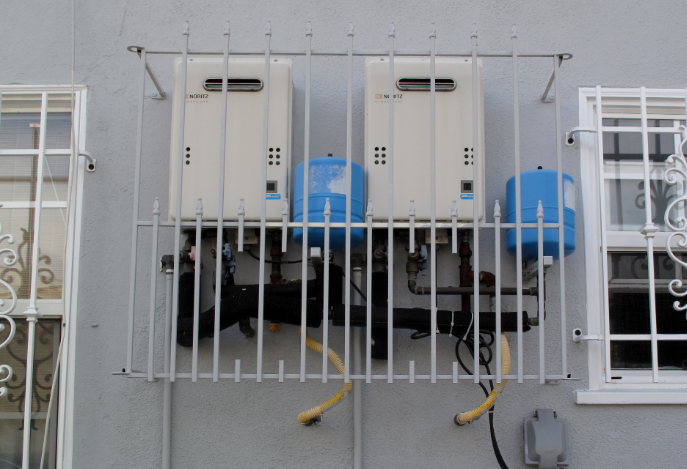 While electricity may be the most common fuel source for hot water, natural gas is also used as a heat source. While gas is less efficient than electricity, it does have the advantage of continually heating water. These gas tanks have an energy factor sticker that reveals how much fuel is consumed in generating hot water for the household. However, gas is a flammable fuel, and leaks can be dangerous.
While electricity may be the most common fuel source for hot water, natural gas is also used as a heat source. While gas is less efficient than electricity, it does have the advantage of continually heating water. These gas tanks have an energy factor sticker that reveals how much fuel is consumed in generating hot water for the household. However, gas is a flammable fuel, and leaks can be dangerous.
Maintenance
A water heater can be a beast. As with most appliances, it requires some routine maintenance to stay operating properly. It should be set at 120 degrees F to save energy, but you can lower the temperature to reduce energy bills and prevent burns. Another small part of your water heater is the pressure valve. Repairing water heaters Shawnee Mission, KS can cost anywhere from $20 to $200. But you should never be afraid to contact a professional if you have questions or concerns.
The water heater should be flushed more often than normal, but call a plumber if this doesn’t solve the problem. It can be expensive to replace a water heater, but it can last for years and save you money with proper maintenance. The best way to protect your water heater and lower homeownership costs is to combine hands-on maintenance with periodic professional checkups. It’s important to understand how a residential water heater works before you start so that it can save you money and headaches.
Lower initial costs
Buying a new water heater can be expensive, but there are several ways to reduce your expenses. The first step is to choose the correct size. Generally, a 30 to 40-gallon tank is sufficient for a two-person household, but you may need a larger one for a family of four. A water heater’s size should also be considered, and the fuel used to heat it. It is good to choose a fuel-efficient model to reduce your initial costs and save on energy over time.
Other than the actual purchase price, you’ll also have to consider the cost of labor. For example, a plumber can charge $400 and $550 to remove and install your old unit. Additional costs may include the cost of gas lines and venting. These extra expenses can add up to $1,000 $10,000 to your total bill.
Lower energy costs
You may be surprised to learn that the average American family spends close to $600 per year on their water heaters. They also contribute to the emission of more carbon dioxide. But, there’s an easy solution – and it’s in your control. By insulating your water heater, you can reduce your energy costs by 25 percent. Before installing a new water heater, take the time to choose one that is efficient and saves on energy. Most people won’t consider this option until the existing one stops working. Then, it might be too late. By then, the need for hot water has arisen at the worst time. It’s tempting to buy the first one you find. However, it’s far more prudent to take your time and do some research before purchasing a new water heater. It will ultimately save you money in the long run.
Safety
A water heater can be a great source of hot water in your home. But it is also an electrical and safety hazard. Gas water heaters can catch fire, and gas is extremely flammable, so it is best to store these items away from your water heater. Gas cans can also cause fires, so keeping gas cans and jump ropes away from your water heater is important.
The temperature setting of your water heater is important to ensure that there are no gas leaks. The maximum temperature should be 120 degrees to kill germs but not burn you. Also, you should check the ventilation in your water heater. Finally, if it has a gas tank, you should install a carbon monoxide detector. The presence of carbon monoxide is a serious health hazard. It can cause memory loss and vision loss in victims.
The water heater should be flushed more often than normal, but call a plumber if this doesn’t solve the problem. It can be expensive to replace a water heater, but it can last for years and save you money with proper maintenance. The best way to protect your water heater and lower homeownership costs is to combine hands-on maintenance with periodic professional checkups. It’s important to understand how a residential water heater works before you start so that it can save you money and headaches.
